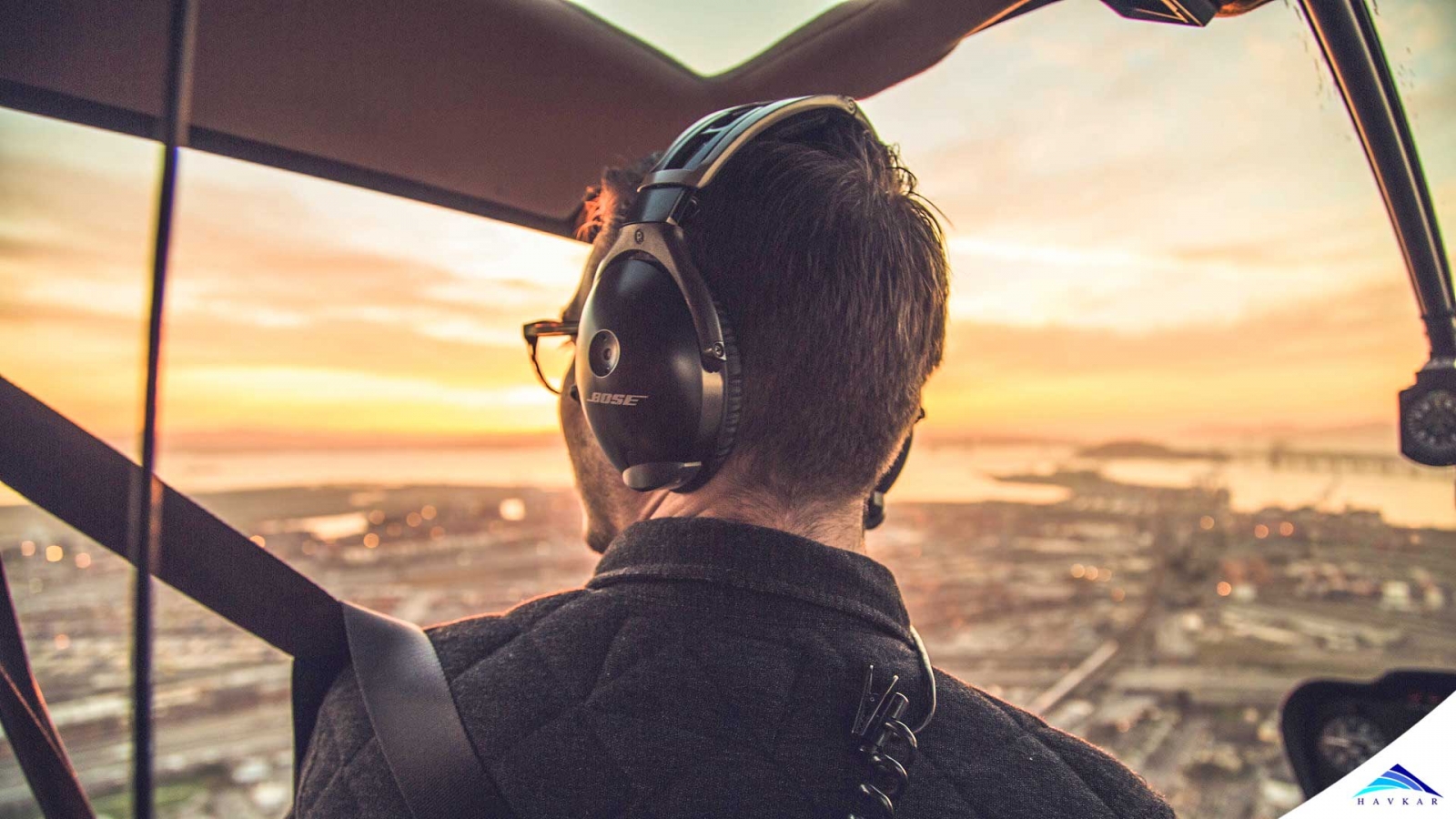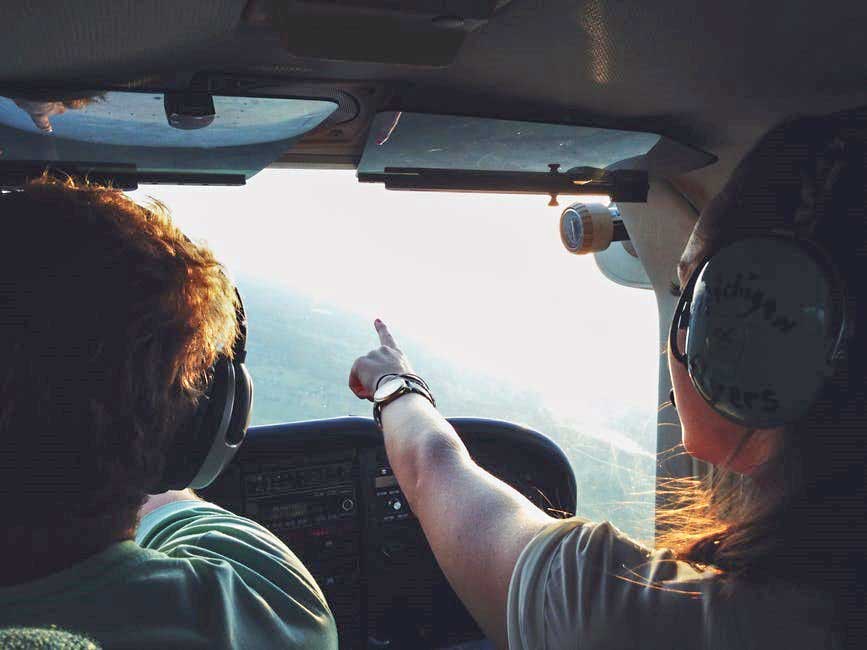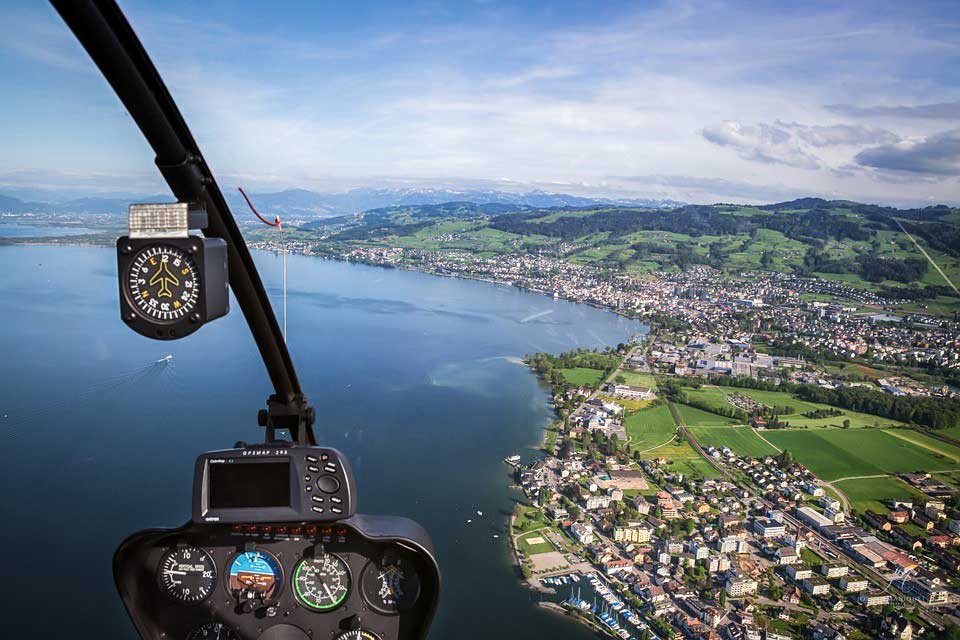
Most student pilots have nothing but positive things to say about their experiences at flight school, however, as it is a highly costly endeavour and something that will impact your future career, it is imperative that you do not make the selection lightly. It is important to meet with various flight schools prior to making your decision, and to remember that at the end of the day, a flight school is a company that wants your business. It is not uncommon for flight schools to exaggerate the availability of jobs in the industry, and you need to be leery of any flight school guaranteeing employment with them after graduation.

If the high financial commitment seems daunting, there is always the option, depending on your country, of enlisting in a military flying program. Joining the military or air force is a great option to receive high quality training without the financial burden. In exchange for flight training, however, there are usually a minimum number of years of service requirement and the military lifestyle is not for everyone. If you are seriously considering the military path, it is a good idea to meet with a recruiter in your area to determine if it will be a good fit for you. If, however, you wish to pursue the civilian route, the follow items are things that you must consider.
The highest priority in your training should always be your safety. You want to ensure that the flight school you are attending has an impeccable safety record, and that they have never had a serious accident involving a student. The flight school should be well established and have a good reputation within the aviation community. As the majority of your flight training, especially at the beginning stages, is dual flight time with yourself and the instructor, it is valuable to meet the instructor you will be doing your training with before making any decisions. You should always ask for a detailed description of your flight instructor’s experiences, including previous type of helicopter work, number of flight hours in total and the number of flight hours on the type of aircraft you will be training on. Though not a requirement, it is always beneficial if your flight instructor has worked in the sector that you are most interested in. For example, if you have aspirations of being involved with Air Ambulance, it is nice to have an instructor that has experiences working in the Medevac field. You should also ask the instructor their success rate with getting students through the flight program, and the circumstances in which any students were unsuccessful.
Another thing to consider is the type of aircraft that the flight school is offering as their training helicopter. You should take the time to research which aircraft you think will be the best fit for you, and find a flight school that offers training in this aircraft. Things to consider when selecting a helicopter for training are the safety, cost and difficulty of controls. An increasingly common aircraft for training is the Robinson R22 due to its affordability; however, many students also elect to train on the Schweitzer 300 series, Bell 47s and Enstrom helicopters as well. It is also a good idea to ask the flight school the number of aircraft they have available for training, as you do not want to be limited in your flight time by a small number of aircraft and large number of students.

The majority of your flight training will take place inside the aircraft, however, there is also a Ground School portion required for your training. It is important when interviewing potential schools that you understand the structure of their Ground School program and whether or not it fits with your learning style. Some flight schools offer a more rigorous structure which is ideal for students trying to complete their studies in a set amount of time, whereas other flight schools offer a more flexible program where students have the option to learn at their own pace. A more individualistic Ground School is an ideal option for students who are juggling family commitments or other employment.
Financing your flight school is a large commitment, and you want to discuss well in advance the payment plan options with your potential school. You should be highly cautious of any school that requires the payment in full, and also of any school that requires you to finance the program through them. Typically, the most common practice of payment is to pay for flight hours in small increments. There should always be the option for a refund of unused flight hours if you decide that you no longer wish to participate in the program. Usually Ground School, as well as textbooks, navigation charts and other non-flight related expenses, are not refundable. It is also worth exploring whether or not your flight school is eligible for any government assisted programs, or whether or not they are able to offer scholarships or financial support.
A flight school that offers a post-graduate employment program is a bit of a catch-22. Some schools that offer instructor ratings will hire new instructors directly from the pool of recent graduates, however, that means that your training will be done by someone with little to no experience. Other flight schools are affiliated with tour companies or have a tour program associated with their school. Many of these schools will hire recent graduates to conduct tours, which can be an excellent way to gain experience and build flight hours. Be cautious, however, of flight schools that make you complete additional training in order to work for them in this capacity. It is more common than not that flight schools will tell students that if they purchase an extra endorsement on an aircraft or complete a specialized tour program that they can guarantee them a job, and then after taking their money, not be able to offer any employment opportunities.

Ultimately the best thing you can do when selecting a flight school is to visit them all in person to get the general feel of the program. Make sure to take note of the cleanliness of the facilities as well as the maintenance of all of the aircraft. The hangar should be well kept and the maintenance history of all aircraft should be readily available. It is a good idea to talk to current students and previous students about their experiences, and read online reviews and discussion forums of the various flight schools you are interested in. Most flight schools will offer an introductory flight which can count towards your flight hours put towards your license. An introductory flight is one of the best ways to decide if you and the flight school are a good match, and can give you a glimpse into the future of the next few months to come. Flight school is an investment in yourself, and you should take the time to explore all of your options to find the best fit that will keep you safe and effective in the sky.